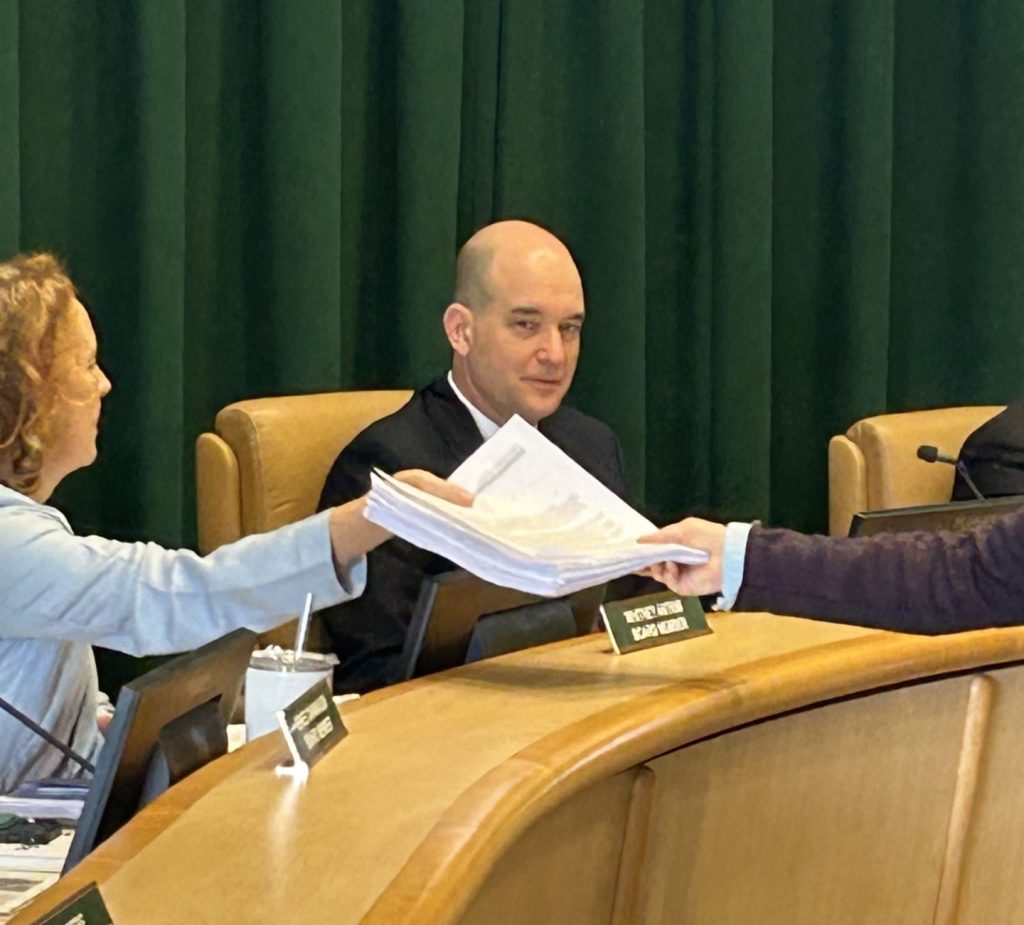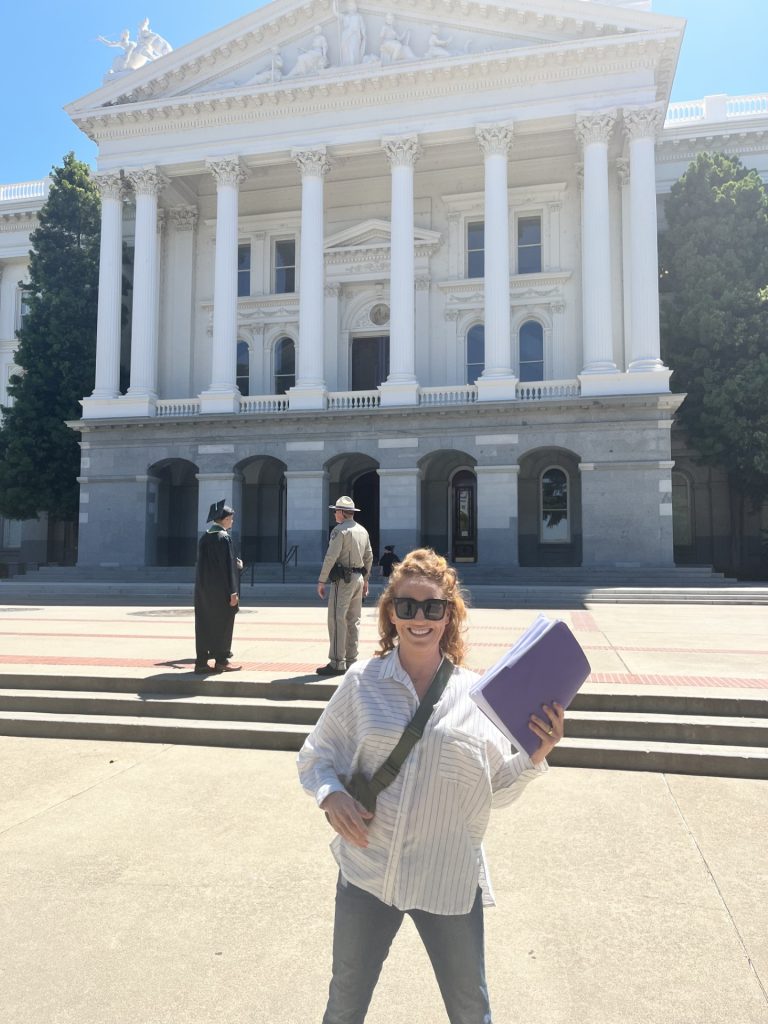Source: Coronado Unified School District
Following a request to the Coronado Unified Governing Board from Coronado High School students to join their advocacy to stop the sewage pollution in local ocean water, the board members stepped up to lend their support to the cause. The school community collected 448 letters on CUSD letterhead which were delivered to Sacramento on May 17, 2024.

“This issue directly affects the health and wellbeing of our student body and community. It is absolutely relevant for the elected trustees to support student efforts to address this man-made environmental problem. I am proud of our students and community for this strong advocacy effort,” said Trustee Dr. Scot Youngblood.
Trustee Whitney Antrim drafted the template letter which was widely circulated by members of CHS clubs including Emerald Keepers and Stop the Sewage, at local businesses, and in elementary school classrooms.
“It’s refreshing and inspiring to see our students and our broader community come together in this effort. I also like that we chose a different approach to advocacy – it’s important to show that civic engagement can take many different forms,” shared Antrim, referring to the board’s decision to actively engage in the process along with the community instead of simply signing a resolution.
The letter was addressed to President Biden and Governor Newsom, urging them to pay attention to the “pollution and environmental crisis plaguing the Tijuana River and its surrounding areas.” The letter asks the governor to proclaim a State of Emergency in San Diego County and the president to declare a Federal Emergency and allocate appropriate resources to address the public health crisis.

Antrim, who hand-delivered the letters to Governor Newsom’s office in Sacramento, shared that she also visited Senator Vargas’ office while at the capitol. “I shared our request for action on the sewage problem with his staff. I was received warmly and learned that they are on top of this issue and have a couple bills making their way through the legislative process to try to address it from a policy perspective,” she said.




